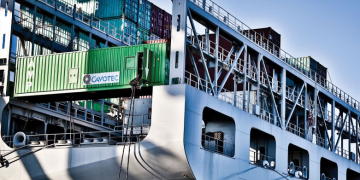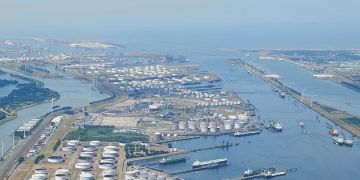As a meeting of the International Maritime Organization’s (IMO) Pollution Prevention and Response sub-committee (PPR 9) opened on April 4th, NGOs have called for the IMO to develop a mandatory regulation requiring a switch to distillate or alternative cleaner fuels or methods of propulsion for vessels operating in or near Arctic water.
In November 2021, during a meeting of its Marine Environment Protection Committee (MEPC 77) , the IMO adopted a resolution which could lead to a significant cut in the climate impact caused by ship black carbon emissions on the Arctic; and one which the Clean Arctic Alliance called an ‘important development in moving away from the dirtiest shipping fuels’.
At PPR 9, IMO member states must agree on ambitious and urgent global action to dramatically reduce ship-source black carbon emissions this decade, in order to mitigate the climate crisis in the Arctic
…said Dr. Sian Prior, Lead Advisor to the Clean Arctic Alliance, a coalition of 20 non-profit organizations working to persuade governments to take action to protect the Arctic, its wildlife and its people.
The IMO’s black carbon resolution strongly encourages governments to start addressing the threat to the Arctic from black carbon emissions, and provides a pathway for regional or national action. It also urges ship operators to reduce black carbon emissions by switching to distillate, or other cleaner alternative fuels or methods of propulsion when operating in or near the Arctic
…said Dr. Sian Prior, noting also that the threat to the Arctic from black carbon from shipping has been known for some time – and what happens in the Arctic doesn’t stay in the Arctic – and the recent high temperatures in the Arctic and Antarctic may be signs of how climate change is impacting the polar regions.
The NGOs highlighted that temperatures in the Arctic last month were recorded at 30 degrees Celsius above normal levels for the time of year, and warned that changes to a heating Arctic climate ‘will undoubtedly have serious repercussions further south’.
It was noted that, when black carbon is emitted from the exhausts of ships and settles onto snow and ice, it accelerates melting and the loss of reflectivity – the albedo effect – which creates a feedback loop that further exacerbates local and global heating.
Due to the use of heavy fuel oils and increased Arctic shipping traffic, emissions of black carbon from ships in the Arctic increased 85% between 2015 and 2019, the NGO said, citing a paper published by the International Council on Clean Transportation.
Fortunately, the short-lived nature of black carbon means that reductions in emissions can deliver immediate climate benefits, and with simple regulatory options including a switch to cleaner fuels on the table, action to reduce ship-source black carbon should be politically attractive
…said Prior.
In the meantime, if all shipping currently using heavy fuel oils while in the Arctic were to switch to distillate fuel, there would be an immediate reduction of around 44% in black carbon emissions from these vessels, and the benefits of reduced black carbon would be felt immediately
…Kåre Press-Kristiansen, Senior advisor, Air Quality & Climate, Green Transition Denmark (Grøn Omstilling), added.
The NGOs are also calling for the IMO to adopt a measures that will prohibit the use of exhaust gas cleaning systems in all waters globally over concerns about scrubber discharge.





























































